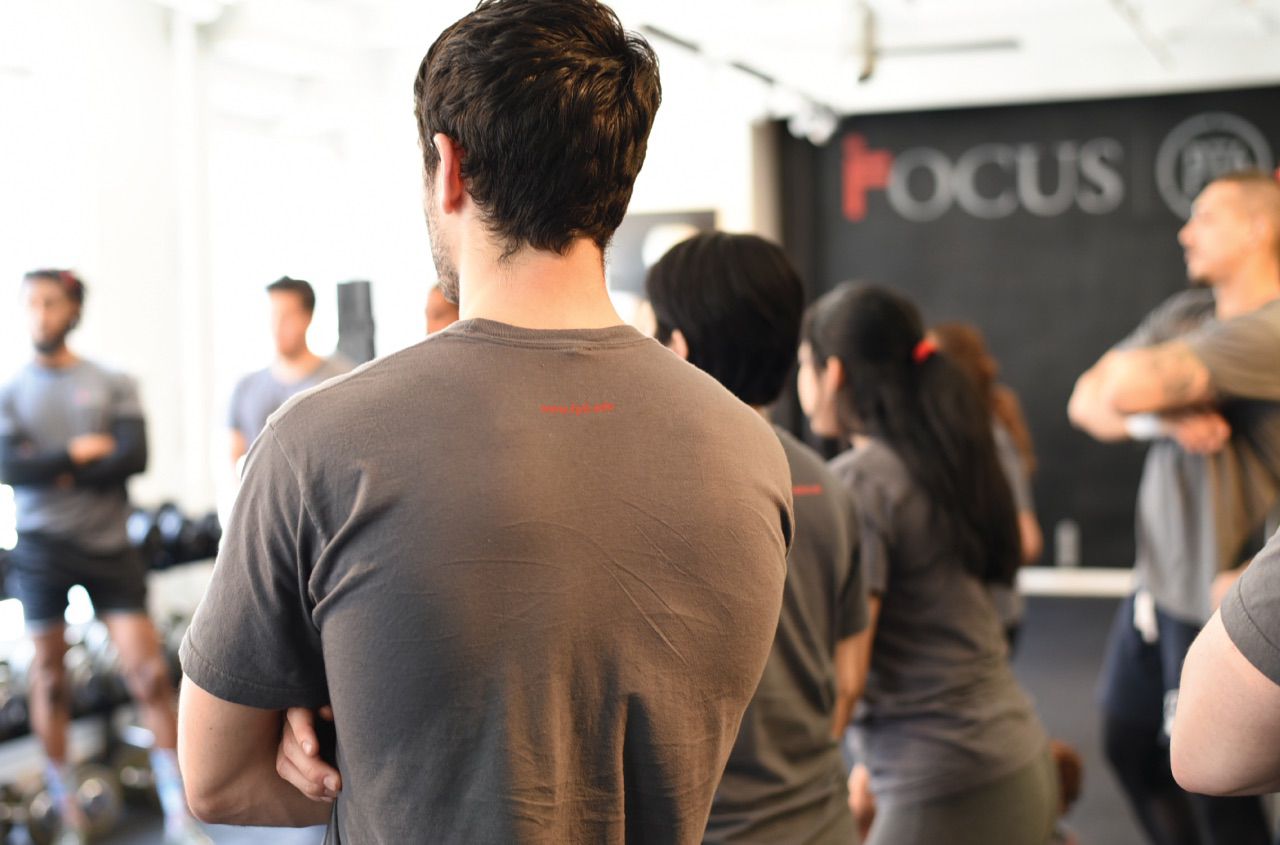We spend countless hours training our bodies, grinding out reps, and chugging endless protein shakes – but what happens if you’re wrong?
What if the greatest benefits from strength training aren’t actually acquired from physiological changes at the cellular level?
Everyone seems to get stuck on the physical benefits and the never-ending quest for muscle. But most have no idea what they are entering into.
Weight training is much more than simply moving mass for the sake of moving it. You’re entering into untapped potential IF you understand what’s happening and how to harness the opportunity.
Mental Linearization
If you’ve ever spent time learning the practice of mindfulness or meditation, then you have already experienced a mild introduction into the world of linearization.
You see, the concept is somewhat simple – mindfulness is dedicated to teaching you how to block out unnecessary or unwanted stimuli in order to direct thought toward relaxation.
Training, on the other hand, is almost the opposite – the goal is to create a stressful environment to cause adaptation.
But within this stressful environment, you’ll find a similar concept – training can teach you the “art” of mental linearization.
The next time you go into a gym, consider the average trainee who might spend 30-40 minutes of their time actually working out. The rest of their time is spent playing on their phone or talking. Their workout might seem tough, but most sets are completed as quickly as possible, and the pain is short-lived.
While this ideology can certainly work to keep someone generally healthy from a simple movement standpoint, they are missing a massively important opportunity.
Training is the perfect example of mental singularity – in the middle of many stressful stimuli, you are provided with the opportunity to learn distraction awareness.
You may not realize it, but this mental concept applies to every single aspect of life. You’re going to experience other events with multiple stressful stimuli, that’s guaranteed. If you’ve already trained yourself on how to react with a singular focus, you will be miles ahead of everyone.
Training is your opportunity, so get off of Instagram and focus on what your body and mind are saying.
Intuition
We live in a culture missing personal intuition. If you haven’t noticed – perhaps because you’ve been constantly glued to your phone – humans live in a world of distraction.
Whether you realize it or not, social media is built around the entire concept of self-isolation. It keeps people glued to their phone and away from other personal responsibilities. The platform that gets the most attention wins.
This is why training is becoming more and more important as time goes on, and our culture becomes more disconnected.
Every time you step foot in the gym, you have an opportunity to build that connection – every set, every rep, every second. You’re disrupting your physiology, so you better believe your body is going to send a lot of messages loud and clear.
If you really want to get in tune with what’s going on inside your head, try training without music for 6-8 weeks. Wear headphones, but don’t play anything through them. This serves a dual purpose because people will be less likely to talk to you, but it will also help block out ambient noise within your environment.
Perhaps we choose to live in this state of distraction because we’re scared to see what’s really going on within ourselves? Maybe we are being driven by fear without even realizing it.
Intuition is a difficult methodology to conceptualize, but even harder to apply when distractions are present. Block out the noise and see what you hear because it might surprise you.
Stress Adaptation
From a biological perspective, weight training is probably the absolute last thing your body wants to do daily. Evolutionarily speaking, it’s a complete waste of energy with a net return on investment of zero.
Why waste energy breaking down muscle tissue when your efforts don’t provide food, water, or shelter?
Perhaps in the caveman era, this would have made sense, but in our current day and age, it’s going to be tough to be metabolically healthy without some form of movement. For most, this will entail a few hours in the gym and a general understanding of nutritional principles.
However, make no mistake, your body’s number one goal is SURVIVAL. But as we’ve begun to understand more about human physiology, we’re now about to harness that stress response in a positive format to promote change.
When you incur stress from a training standpoint, your body will do whatever it can to offset that stress. Initially, that offset will come from physiological means. Buffering systems, neural efficiency, and cellular waste removal will come into play to maintain the status quo.
Fatigue
But if you choose to voluntarily continue with exercise, your body will soon begin to implement psychological feedback. This is designed to shut down excess expenditure, and we often refer to this phenomenon as ‘fatigue.’
One very interesting hypothesis promoted by Dr. Timothy Noakes notes the following:
“The brain uses the symptoms of fatigue as key regulators to ensure that the exercise is completed before harm develops. These sensations of fatigue are unique to each individual and are illusionary since their generation is largely independent of the real biological state of the athlete at the time they develop. The model predicts that attempts to understand fatigue and to explain superior human athletic performance purely on the basis of the body’s known physiological and metabolic responses to exercise must fail since subconscious and conscious mental decisions made by winners and losers, in both training and competition, are the ultimate determinants of both fatigue and athletic performance.”
So, what if fatigue was merely the body’s way of trying to survive?
We know that muscle glycogen (aka stored carbohydrates) is only depleted by about 40% after a strenuous bout of exercise. So, what’s really happening when you get tired? Are you running out of stored fuel, similar to a car’s gas tank?
As of right now, the literature would suggest no. Instead, your brain is trying to outsmart you by shutting down the body before permanent damage occurs. You get tired and are less likely to continue wasting energy.
However, there are two very interesting offshoots from this discussion:
- Training can be used to delay this sensation of fatigue as your body adapts to progressive stressors and places certain physiological loops in play to offload stress. Train smart, and you’ll be able to use this to your advantage.
- The human brain is an exceptionally powerful and complex organ. As noted in Noake’s quote above, humans can probably push themselves beyond this 40% degradation through mental fortitude IF (and that’s a big ‘if’ in this case) they understand how to utilize linearization and intuition.
Train Hard, Think Harder
While the concepts may seem obscure and singular in nature, they actually go hand-in-hand. A detailed understanding of points #1 and #2 leads to a greater realization of point #3.
Think beyond the weight on the bar. Go deeper than the information in the textbook, and look further into your mind. You may not always like what you see. But you’ll likely find that strength training offers many more benefits than a merely physical transformation.








